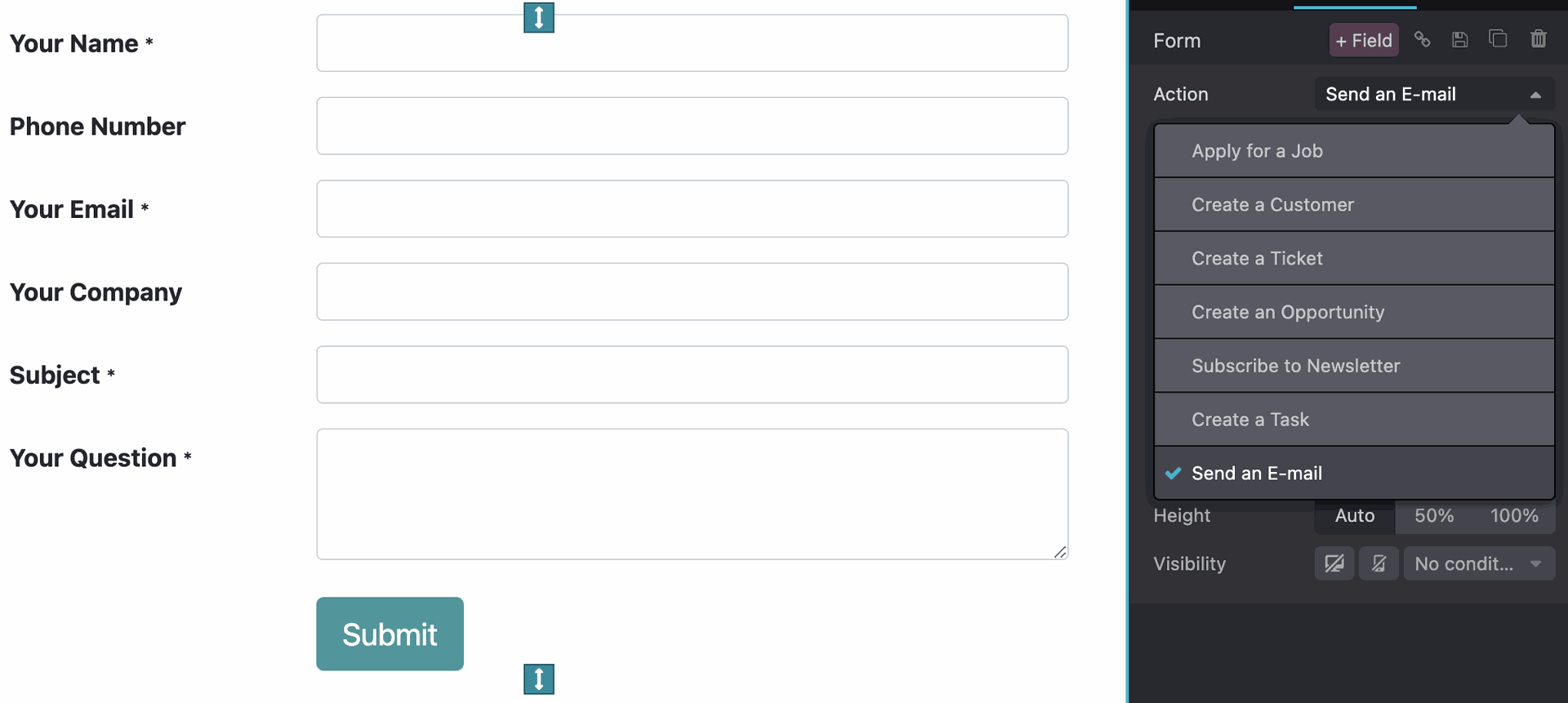In this article, we will compare two popular content management system (CMS) platforms, Odoo and Drupal. Both platforms are widely used for building websites and managing content, but they have distinct features and functionalities. By examining their key differences and similarities, we aim to help you make an informed decision when choosing the right CMS for your needs.
Odoo
Features of Odoo
- Integrated suite of business applications: Odoo is a unified platform that seamlessly combines diverse business tools and functions, including CRM, inventory management, and accounting, into one integrated solution.
- Modular structure for easy customization: Its structural modularity streamlines customization, simplifying adaptability for tailored solutions.
- User-friendly interface: The interface is designed with user-friendliness in mind. It has an intuitive layout, clear navigation, and user-centric design elements. This approach improves the user experience and accessibility, making it easy for people with varying technical backgrounds to use the system efficiently.
- Robust e-commerce capabilities: Odoo has a built-in online store that allows businesses to sell their products or services online. It also integrates with popular payment processors and shipping carriers, making it easy for businesses to accept payments and ship products to customers. In addition, Odoo provides tools for creating promotions and pricing strategies, such as pricelists and tax configurations.
- CRM and marketing automation tools: Embedding a CRM and marketing automation tool in your website streamlines customer data management and targeted marketing efforts. Odoo achieves this by seamlessly integrating CRM and marketing features, enabling businesses to nurture leads, automate campaigns, and enhance customer engagement all in one unified platform.

Pros of Odoo
- All-in-one solution for managing various aspects of a business
- Highly customizable and scalable
- Wide range of pre-built modules and apps
- Seamless integration with other Odoo applications
- Active community support
- Drag-and-drop website builder that makes it easy for anyone to create a professional-looking website, even without any coding experience
- Easily create content from the front end
Cons of Odoo
- Steeper learning curve compared to other CMS platforms
- Limited themes and design options
- Requires technical expertise for most of the customization
- Some modules may have limited functionality
- Lack of dynamic data display: Odoo's website may not offer as extensive dynamic data display features as Drupal, where the Views module provides advanced capabilities for flexible content presentation.
- Limited Multilingual Support: Odoo's website has limited multilingual support, as it primarily focuses on translating text content while lacking comprehensive translation options for elements like backgrounds, page titles, and meta descriptions. This limitation may hinder the full localization of websites for diverse language audiences.
- Only a small percentage of the Odoo apps available on the App store are of high quality and have good support
Drupal
Features of Drupal
- Flexible and extensible framework: Drupal's modular architecture is the key to its flexibility. Modules are small pieces of code that can be added to Drupal to add new features or functionality. There are thousands of modules available for Drupal, so businesses can find modules to meet their specific needs.
- Advanced content management capabilities: Drupal provides a comprehensive set of tools for managing content, including structured content types, fine-grained user permissions, and flexible taxonomy systems. These tools allow users to create and manage complex content structures efficiently.
- Robust security features: Drupal is known for its strong security, characterized by regular security updates, strong user authentication, active security team, content filtering and automated backups, ensuring websites are well-guarded against potential threats.
- Multilingual support: Drupal excels in accommodating multiple languages, thanks to its robust translation modules, ensuring comprehensive website localization for global audiences.
- Scalable for large and complex websites
- Active community contributing to its development
Pros of Drupal
- Highly customizable and flexible
- Powerful content management features: You can easily create and manage content types
- Excellent for building complex and large-scale websites
- Strong security measures
- Large and active community support
- Large database of pre-configured distributions that are ready to use
- Large library of modules and themes
Cons of Drupal
- Steeper learning curve for beginners
- Does not include built-in business applications such as CRM, Inventory, job application management, or supplier portal
- Limited out-of-the-box themes and design options
- Requires technical expertise for advanced customization
- Some modules may have limited functionality
Comparison
Odoo | Drupal | |
Ease of use | User-friendly | More complex interface |
Customization | Highly customizable | Highly customizable |
Design Options | Limited themes and design options | Highly customizable design options |
| Dynamic Data Display | Very limited and requires extensive coding | Highly customizable |
Community Support | Active | Large and Active |
| Scalability | Scalable for SME's | Scalable for large and complex websites |
| Prices | Free and paid options | Free |
Conclusion
Both Odoo and Drupal are powerful CMS platforms with their own strengths and weaknesses. Odoo offers an integrated suite of business applications and is suitable for small to medium-sized businesses. On the other hand, Drupal provides advanced content management capabilities and is ideal for building complex and large-scale websites.
In summary, while Drupal is a flexible content management system, it lacks built-in business application features, whereas Odoo provides a comprehensive set of business tools by default. Ultimately, the choice between the two will depend on your specific requirements and level of technical expertise.
